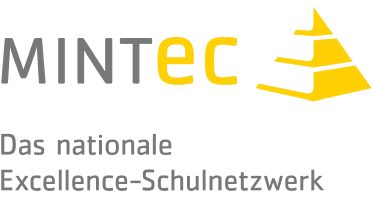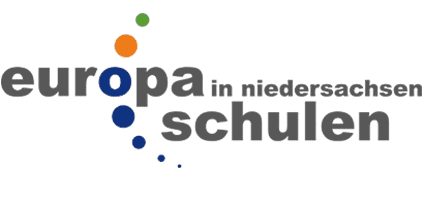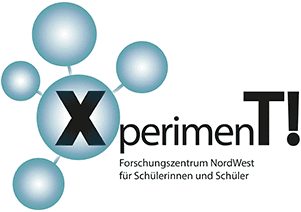| Phone: |
+ 49 (0) 4221 998996 0 |
| Fax: |
+ 49 (0) 4221 998996 40 |
| Internet: |
https://www.maxe-online.de |
| E-Mail: |
info@mpg-del.de |
Student Exchange
Information
|
Download: All you need in Delmenhorst |
| Languages: |
English, Latin or French, Spanish (optional) |
| Type: |
Grammar School / High School / (Pre-College Prep School) |
| Age range: |
10 – 19 |
Secondary school
qualifications: |
Abitur
(University qualification exam / A levels / High-School Diploma) |
| Head teacher: |
Mrs. Katrin Wutschke, appointed in 2019. |
| Staff: |
ca. 90 |
| Pupils/Students: |
around 1000 |
The Max-Planck-Gymnasium was founded in 1952.
The school is located almost in the centre of Delmenhorst, next to the “Graft”, the city’s well kept public park, and the school grounds themselves are like a park. Facilities include playing fields, a music and drama department, two computer rooms, an extensive library with 16.000 books, which also provides computers and Internet access. The local theatre is adjacent to the school and can be used for theatrical productions; pupils can join the school band and orchestra. The music and drama groups have successfully produced one play or musical each year ever since 1986.
-
- “Proper planning is the key to success!” At the beginning of their career at our school, the new pupils spend a week with their respective form teachers and some colleagues at a hostel in the country in order to “learn how to learn successfully”. Educational games, lessons, and deliberation on how to organize their individual learning strategies are regarded as very important by parents and pupils alike. Furthermore, pupils get to know each other and develop a strong sense of belonging.
- Bilingual teaching was introduced in 2002; at present in operation in one class (7th grade) of each year group.
- One class in each year group is reserved for musically gifted pupils whose abilities are fostered and who attend extra music lessons. Learning to play a musical instrument is compulsory and the pupils are encouraged to join the local music school, which works in cooperation with our school.
- SIGN is a project for pupils of the same age group. Pupils’ self-confidence has to be reinforced in order to instil in them a high degree of personal responsibility enabling them to say “NO” to drugs and violence.
- Pupils in the 9th year / grade take part in a period of work experience in trade and industry – mainly in the Delmenhorst and Bremen area. They have to organise the procedure themselves and thus they acquire a first-hand insight into some aspects of professional life in general. Afterwards they have to write a detailed report about their experience and the results are incorporated into their political studies.
- The extra-curricular programme includes introductory courses in computer and information technology. A computer-aided meteorological observation centre is attached to the departments of geography, biology, chemistry, and physics.
- Environmental education and biological research are considered to be of great importance at our school. Since autumn 2002, a newly founded study group has been pursuing ecological research and is linked to the “GLOBE”- Project and to our biology department. The project’s main objective is to contribute to environmental education and thus instil respect for nature. A herb garden was laid out four years ago. Plants from the Mediterranean and indigenous species of the northern hemisphere can be compared and studied. Behind the school buildings, there is a biotope area with two ponds that can be used for observation and ecological projects.
- A “phenological garden” was laid out in 2002. Cloned species of various plants are being monitored in order to compare their development. The results are being recorded and sent – via Internet – to the schools taking part in the project.
- The teaching of art is also important and very successful. Pupils frequently win major prizes in competitions, organized by the State of Lower Saxony and other institutions. There is a close cooperation between the art department of our school, the municipal gallery “Haus Coburg” and local artists. Quite a few murals can be found on walls inside the school, painted by talented pupils, admired, and enjoyed by their fellow pupils, staff, and parents alike.
- Physical education is also regarded as important. The school has a multifunctional gym and playing fields. Our school teams take part in local and regional contests and tournaments (tennis, hockey, soccer, volleyball). For pupils in their senior year, a project entitled “Skating” & “Skiing in Austria”) has been established.
- Preparatory courses for three foreign language certificates are offered: Diplôme d`Etudes en Langue Française / First Cambridge Certificate in English / Cambridge Certificate in Advanced English. The foreign language department makes every effort to ensure that pupils will pass the tests successfully.
- The “Comenius Project” – Our school participates in “COMENIUS”, a programme that was set up to promote international liaison among schools. At the moment, we are cooperating with about 5 schools in Europe; several teachers and pupils meet regularly to investigate local history in different European countries.
- The curriculum is supplemented with day trips and residential visits, including a regular exchange with American schools in Tucson, Arizona and Toledo, Ohio, a French school (Collège & Lycée) in Allonnes, and a Polish school in Lublin.
- The “Towson University Program” was established in 2005. Senior students from Max-Planck-Gymnasium and from Ecumenical Gymnasium, Bremen (a private school) attend lectures and seminars at Towson University (Maryland) for three weeks. Field trips to Washington, D.C. and New York are part of the programme.
Some information about our town Delmenhorst
Population 75.000
is near Bremen (12 km / 7 miles),
Hamburg is about 70 km / 43 miles away,
the North Sea and the Dutch borders about 100 km / 62 miles,
Motorways connect all places mentioned.


